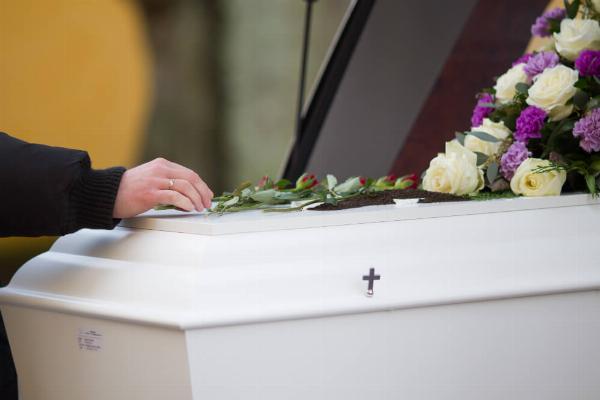Top 5 Things to Know About Christian Funeral Services

Strong 8k brings an ultra-HD IPTV experience to your living room and your pocket.
Christian funerals are a significant part of honouring the lives of those who have passed away. These services bring families together to pay their respects while reflecting on their faith and traditions. Understanding what to expect from Christian funeral services can help ease the burden during an emotional time. Below, we’ll cover the essential things you need to know.
1. Understanding the Christian Beliefs About Death
Christian beliefs about death deeply connect to the idea of eternal life. According to the Bible, death is not the end but rather a passage to an everlasting life with God. This belief forms the foundation of Christian funerals and shapes how people conduct the service.
- Life after death: Christians believe that those who have faith in Jesus Christ will enter heaven.
- The resurrection of the body: Many Christian denominations believe that the body will be resurrected and reunited with the soul on the Day of Judgment.
- Hope and comfort: Funeral services offer hope and comfort to those mourning, focusing on the promises of eternal life.
2. Key Elements of a Christian Funeral Service
A Christian funeral service follows a general structure, though specific details might vary depending on the church or denomination. There are some elements you can expect across almost all Christian funerals. Understanding these elements can help you know what to expect when attending or planning a service.
Common Elements:
- Prayers and readings: Prayers are often led by a pastor or priest. These prayers offer comfort and hope to the grieving family. Additionally, readers emphasise the theme of eternal life through passages from the Bible.
- Hymns: Hymns are songs of worship that reflect Christian beliefs about life, death, and resurrection. Some services may include congregational singing, while others might feature a choir or recorded music.
- Eulogy: A family member or close friend often delivers a eulogy to honour the life of the deceased. This is a chance to reflect on the person’s character, values, and faith.
- Sermon: The pastor or priest typically offers a sermon that ties the deceased’s life to Christian teachings. The sermon often serves as a source of comfort, reminding attendees of the hope in Christ.
Points to Note:
- Open vs. closed casket: Some Christian funerals may feature an open casket, allowing mourners to view the body and say their final goodbyes.
- Participation: Family members and friends may participate in the service through readings, prayers, or sharing personal reflections.
- Communion: In some Christian traditions, communion (or the Eucharist) may be part of the service.
3. Cultural and Regional Differences
Though all Christian funerals have a basic similarity in their elements, implementation varies vastly across regions, cultures, and even individual sects or denominations. Each group contributes their customs and traditions to the service. So, these seem a slight difference, but it matters a lot to the people involved in the process itself.
Regional Differences:
- Western Christian funerals: Taken in general, Christian funerals in the Western world are usually more structured and formal. The church usually predetermines services and places great emphasis on liturgy and scripture.
- Eastern Christian funerals: On the contrary, in Eastern Orthodoxy, funeral services are usually longer and very pompous. People chant and burn incense, often taking more steps in rituals than seen in Western services.
- Christian funerals in Africa: While among other African cultures, Christian funeral practices are widely a community affair and can take several days of celebrations. The services involved are rich and festive, emphasising the belief in eternal life and the regrouping of the community in heaven when Jesus comes again.
Denominational Differences:
- Catholic funerals: Catholics normally conduct their funerals in a Requiem Mass, where full communion is given. Additionally, the service is held while prayers for the soul of the departed are made and to comfort the family.
- Protestant funerals: Funerals among the Protestants are less elaborate and do not necessarily include a mass. The services mainly hold a celebration for the life of the person and to comfort the family that is left behind.
- Anglican funerals: Funerals in an Anglican rite would have some inclusions of both Catholicism and Protestantism in their elements, including prayers, hymns, and scripture readings.
4. The Role of Family and Community
The family and the community are the hubs of all Christian funerals. These funeral services allow them not only to bid the last farewell but also help one another during the difficult time of sorrow. Especially families have huge responsibilities in preparing and conducting a funeral service, while communities provide comfort and solidarity.
Involvement of the Family:
- Service planning: Normally, it is planned with a great deal of cooperation from the church. Readings are chosen, music played, and speakers decided upon by the family. That way, they really can individualise the service to reflect in some ways the faith and values of the deceased.
- Service participation: Most of the time, families are actively involved in a service. Some may present the eulogy, read scriptures, or say prayers for the deceased. This serves as an avenue to pay tribute to the loved one, all the while giving them a chance to express their grief.
- Grieving as a group: Funerals eventually bring families together. They give families an opportunity for open grieving and finding comfort in shared memories. So, the gathering offers a reminder that "one is not alone in their grief".
Communal Support:
- Prayers and presence: Emotional and spiritual support is provided by the community through attendance at the funeral, offering prayers, and just being present. Thus, it reminds the bereaved family that their loved ones care for them during their grief.
- Offering aid: The community comes through in quite a number of ways, often with food, sometimes with funeral arrangements, and at other times with finances. In the Christian setting, faith enlightens the duty to help a grieving family.
- Sustained support: The community continues to visit, pray with, and comfort the family even after the funeral ceremonies. This further aids in making this transition easier after loss.
5. What to Expect During the Ceremony
A Christian funeral follows an ordered and respectful structure that comforts and guides those present. Knowing what to expect helps you feel more prepared and at ease.
Key Parts Of the Service:
- Open prayers: Most services start off praying to God, for his presence and comfort.
- Hymns: This may include singing of hymns or religious songs by the congregation. They usually express faith and hope in God's promises here.
- Sermon or homily: The pastor or priest gives a message, providing spiritual guidance to the mourners and reflecting on the life of the deceased.
- Eulogy: The family or one of his close friends might share some memories of the deceased and their personal reflections.
The End Note
Christian funerals console with faith, community, and tradition. Knowing how to proceed with the service, from the prayers to the eulogies, may make you feel much more connected and better equipped. These Christian funeral services not only give a person a fitting farewell but also restore faith-based assurances of hope and peace during a time of need. For those planning a funeral, knowing the details can make all the difference in ensuring a meaningful and respectful farewell.
Note: IndiBlogHub features both user-submitted and editorial content. We do not verify third-party contributions. Read our Disclaimer and Privacy Policyfor details.







